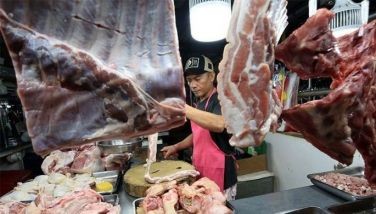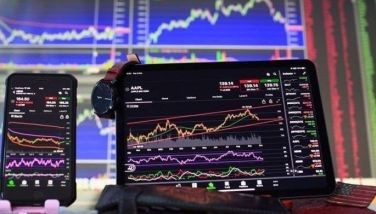COVID-19 vaccines and developing countries

Within the year during which the COVID-19 pandemic wrought havoc on countries around the world, modern science and industry appears to have succeeded in producing an effective vaccine against the virus.
This is the big news of the day, the year!
Life (or imagined paradise in our virus-infected world) is likely or hoped to be regained. The future could be predicted again with some confidence that normality in individual, social, and economic activities will resume.
The vaccines. The first of the vaccines – the Pfizer/BionTech vaccine – was approved by the US Federal Drug Administration (FDA) recently and will be administered in a rapid rollout to US destinations across the nation.
Three other candidate vaccines in this order of enumeration – Moderna/National Institute of Health vaccine, the Astra-Zeneca/Oxford University vaccine, and the Johnson and Johnson vaccine – are in line for evaluation for adoption soon.
US approval by the its FDA is a trigger point for acceptance widely around the world, for it is considered of high standard. Of course, other countries will undertake their own review and approvals. In fact, the United Kingdom went ahead of the US in adopting the Pfizer/ vaccine one week before the US approval.
As time goes on, more vaccines of different makes and formulation to fight the COVID-19 virus are likely to come out for review and adoption. This also assures that competition for effectiveness – both from the standpoint of medical efficacy and cost-effectiveness, which is important, will be forthcoming.
More vaccines are in development, including those from China and Russia. The vaccines coming out of these countries are likely to be cheaper in cost than the ones developed in the Western industrialized countries. They will provide more pressure for competition to the drug companies producing the vaccines.
Since time is of the essence, the countries with the economic capacity to buy the supply are likely to benefit sooner than the poorer countries. The reason for this is the way the distribution of vaccines is being made.
The drug companies are selling in bulk to those countries to get their production committed. This system favors the wealthy countries. There has been no world leadership in working out the issue of country distribution.
Further, the following reasons will help to explain what to expect.
Country economic capacity. Highly developed countries have better capacity to distribute, administer to users, and pay for the vaccines.
In the first place, they are costly to research and to develop. After development, the costs associated with research, manufacturing and distribution, despite state support and subsidies, are not trivial.
Only rich countries and technologically capable countries can develop, manufacture, and distribute them.
In such a system, the less well-off countries are likely to secure only a limited fraction of the available supply of the early vaccine. Hence, they are left with only a fraction of their population vaccinated.
Limited logistical capacity in poorer countries. The early vaccines require highly sophisticated logistical capacity. The Pfizer vaccine has to be transported at very high freezing temperature, thus requiring especially high capacity refrigeration. It is the same with the Moderna vaccine, although to a lesser degree.
Even if logistically efficient deliveries are made by modern, highly efficient transport shippers, the chance of spoilage at the point of use is higher. That endangers efficacy.
One reason is that the locality may not have stable electricity supply. The high refrigeration requirements are additional costs toward upgrading the country’s demand for infrastructure. Some localities might not be able to afford the required upgrade in facilities, or could be subjected to higher instability in electricity requirements (if in normal times, they are already challenged in this regard).
Danger of vaccine nationalism. In a pandemic, all countries are affected and their populations are equally susceptible to infection. If rich countries buy up the supply of vaccines entering the market, they in effect corner the supply and preclude other developing countries from acquiring theirs.
The fact is that much of the early supplies of vaccines to be produced in mass quantities are already pre-committed to countries through bilateral contracts signed, ahead of acceptance of the vaccines being developed. In this way, many high income countries have assured supplies for their own needs.
A pandemic requires that all countries be afforded a chance to acquire their vaccines. Safety requires equitable access of all countries since the world is connected through trade in goods, and through travel of people.
Failure of developing countries to obtain their equitable share in vaccine needs will definitely widen social, income, and economic inequalities among countries in this already unequal world.
To reduce this possibility, an international alliance of non-profits and countries, with the support of both the WHO and the World Bank, is working toward improving the access of developing countries to vaccines as their supply becomes available. Such an alliance, however, is fighting the powerful country decision-makers.
Gavi, or the Vaccine Alliance, through its program known under the name COVAX, aims to contract or acquire vaccines for distribution to developing countries on an equitable basis. The vaccines they acquire would be available at cost to poor countries, not commercially.
An example along this line is the case of the AztraZeneca/ Oxford vaccine, which does not have as much refrigeration requirements as the early Pfizer or Moderna vaccines. A billion doses of this vaccine is planned to be manufactured in India, and the supply would be made available at cost to developing countries. Unlike the early vaccines – Pfizer and Moderna – this vaccine requires less refrigeration and would have less complicated logistical requirements for distribution.
In the longer run, as more supplies of vaccines become available, the price of vaccines would fall. The luxury of time and learning from experience will also help to improve the vaccines.
Competition among the vaccines produced in the West and the entry of the Chinese and Russian vaccines, will also assure this.
However, the lag in application of vaccines among developing countries will also have distanced the early benefits derived by countries with the means and those without.
For archives of previous Crossroads essays, go to: https://www.philstar.com/authors/1336383/gerardo-p-sicat. Visit this site for more information, feedback and commentary: http://econ.upd.edu.ph/gpsicat/
- Latest
- Trending


























